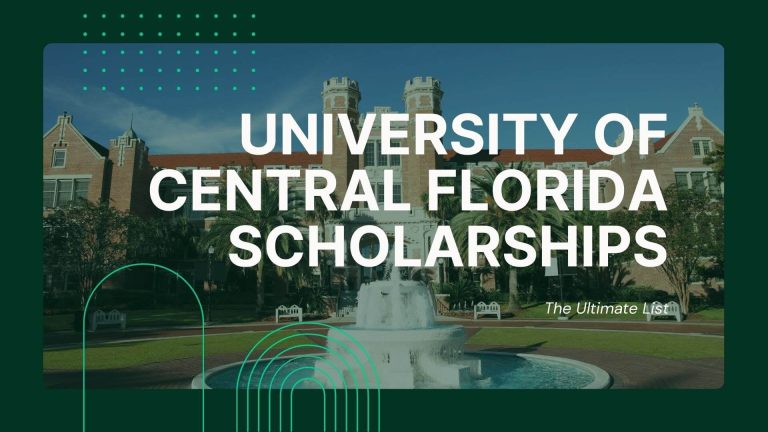Applying for scholarships has become more accessible than ever, thanks to the convenience of online applications. Regardless of your education level or immigration status, there are scholarships available to suit your needs. Students can now easily browse and apply for opportunities tailored to their qualifications with just a few clicks.
It’s important to remember that undocumented students are not eligible for U.S. federal financial aid, including students with Deferred Action for Childhood Arrivals (DACA) status. However, state-based programs, college-specific financial aid options, and private scholarships can provide financial assistance. Many colleges encourage undocumented students to complete the Free Application for Federal Student Aid (FAFSA) as a way to determine eligibility for institutional aid.
While finding scholarships may be straightforward, securing them can be competitive. Many scholarships require applicants to demonstrate academic achievement, maintain at least a B average, or have experience in their intended field of study.
In this guide, we’ve identified promising scholarships for undocumented students to apply for that have varying eligibility criteria. We’ve done this so these scholarships are accessible to a wide range of students with different backgrounds and achievements. We also show you some insider tips and information to maximize your chances of winning, empowering you to pursue your academic goals.
Check out our list of scholarships to find the right opportunity for you. Start your search with confidence and take the next step toward paying for your college education.

Types of Scholarships for Undocumented Students
Undocumented students have access to a variety of scholarship opportunities. Below are the most common types and what they typically entail.
College-Specific Scholarships
Many colleges and universities offer scholarships exclusively for their incoming or continuing students, including undocumented students. Eligibility requirements, such as a minimum GPA, are often detailed on their websites or through the financial aid office.
Merit-Based Scholarships
Merit-based scholarships focus on academic, creative, or athletic achievements and are often open to all students, regardless of immigration status (unless otherwise specified). These scholarships are ideal for undocumented students with strong records of achievement in any of these areas.
Need-Based Scholarships
Need-based scholarships provide financial assistance to students facing economic hardships. While undocumented students are not eligible for federal funding, many need-based scholarships from private organizations or colleges do not require U.S. citizenship, making them a viable option. Supporting documentation about financial circumstances may be required.
Student-Specific Scholarships
These scholarships consider personal factors such as ethnicity, religion, or family background. They often embrace diversity and inclusivity, providing crucial financial support to underrepresented groups, including undocumented students.
Career-Specific Scholarships
Designed for students pursuing specific career paths, these scholarships help undocumented students achieve their professional goals in fields such as medicine, education, engineering, and more. Eligibility criteria can vary based on the sponsoring organization.

How to Find Scholarships for Undocumented Students
Undocumented students with high aspirations have access to a range of scholarships. To stand out, focus on creating strong, high-quality applications.
- Start Your Search: Begin by identifying scholarships for which you’re eligible. Platforms like Bold.org feature hundreds of scholarships tailored to various education levels and demographics, including immigrants and undocumented students.
- Check Eligibility Criteria: Carefully review each scholarship’s requirements to ensure you qualify. Some are designed for high school seniors, undergraduates, or graduate students, so match your profile to the right opportunities.
- Understand Tuition Requirements: Be aware of tuition policies that may affect you. Section 505 of the Illegal Immigration Reform and Responsibility Act of 1996 impacts in-state tuition rates for undocumented students. Research tuition policies at your schools of interest to calculate how much funding you’ll need.
How to Apply for Undocumented Students Scholarships: A Step-by-Step Guide
Here’s how to get started:
Step 1: Identify Scholarships
Search for scholarships that match your background, goals, and education level. Focus on opportunities open to undocumented students.
Step 2: Prepare Your Application Materials
Gather all required documents, such as transcripts, essays, and letters of recommendation. Some scholarships may also ask for proof of financial need.
Step 3: Submit Your Applications
Follow the specific instructions for each scholarship. Carefully read the guidelines and tailor your application to the scholarship’s criteria.
Step 4: Track Your Progress
After submitting your applications, use tools like the Bold.org dashboard to monitor their status. Staying organized can help you keep track of deadlines and updates.

Tips for Finding Financial Aid Opportunities
Securing a scholarship as an undocumented student can make a major difference. Here are some strategic tips to help you stand out and increase your chances of winning.
Tip 1: Start Early
The earlier you start the scholarship application process, the better. This gives you ample time to research, prepare, and polish your application, increasing your chances of standing out and winning.
Tip 2: Tailor Your Application
Since each scholarship has unique requirements and focuses, you want to optimize each application to fit these specifics. Use your application to show how your background and achievements align with the scholarship’s mission and why you’re the best candidate.
Tip 3: Showcase Your Unique Experience
As an undocumented student, you have unique experiences and perspectives worth sharing. Be authentic, showing the scholarship panels how you plan on contributing to your community or school.
Tip 4: Write a Strong Essay
Some scholarships ask for a written essay, usually around 400–600 words. This is your chance to tell your story and make a lasting impression, so ensure you proofread, sound genuine, and have others review your work.
Tip 5: Apply for Several Scholarships
Limiting yourself to one scholarship lowers your chances of winning, so explore all the available opportunities and apply to as many as possible. However, ensure you put enough time into each application and don’t rush through the process.
Frequently Asked Questions About Scholarships for Undocumented Students
1. Can Undocumented Students Get Full-Ride Scholarships?
Yes, undocumented students may qualify for full-ride scholarships, which can include tuition, fees, and on-campus housing. Some will have specific requirements, such as Deferred Action for Childhood Arrivals (DACA) status, while others accept all undocumented students, so ensure you check the eligibility criteria.
2. How Can Undocumented Students Apply for Scholarships?
Undocumented students can apply for scholarships by contacting their school’s financial aid department or through services like Bold.org, which makes it easy to find and apply for applicable scholarships at no cost.
3. Does FAFSA Give Money to Undocumented Students?
Most undocumented students cannot complete the FAFSA and are ineligible for federally-funded student financial aid. Likewise, DACA students cannot apply for federal student aid.
However, undocumented students can still complete the California Dream Act Application (CADAA) in California and similar state-level applications in other states that offer state-based financial aid.
4. Can Undocumented Immigrants Get a Loan?
Yes, non-US citizens living in the US with a valid visa, as well as Green Card holders, can often apply for a personal or business loan, which may be used to cover educational costs depending on the loan terms and lender.
5. What States Allow Undocumented College Students?
According to the Higher Ed Immigration Portal, only three states (Alabama, Georgia, and South Carolina) prevent undocumented students from enrolling in all or certain public institutions. The other 47 states have varying policies, with some only accepting DACA students. Be sure to research your state’s undocumented student policy to determine your options.
Some states, such as California and Texas, are more inclusive, offering in-state tuition and state-based financial aid for undocumented students, including DACA recipients. Other states may allow undocumented students to enroll but do not provide in-state tuition benefits or state aid.
6. What Is the Hispanic Scholarship Fund?
The Hispanic Scholarship Fund (HSF) is a nonprofit organization established in 1975 to empower Hispanic students with the knowledge and resources to successfully complete higher education. Each year, HSF selects 10,000 outstanding students as HSF Scholars, providing them with access to career services, mentorship, leadership development, and scholarships.
7. What Is the Davis-Putter Scholarship Fund?
The Davis-Putter Scholarship Fund was founded in 1961 as a memorial to Marian Davis, a teacher and political activist. It provides need-based grants to students actively working for peace and justice. These scholarships are awarded to both undergraduate and graduate students who are part of progressive movements on campus and in the community.
8. What Is Golden Door Scholars?
Golden Door Scholars is a nonprofit organization dedicated to providing significant college scholarships and support to high-achieving undocumented students, including those with Deferred Action for Childhood Arrivals (DACA) status. Established in 2013, the program aims to promote economic mobility by facilitating access to higher education and career opportunities for undocumented individuals. Students eligible for Golden Door Scholarships include those pursuing a bachelor’s degree.
9. Does a scholarship cover tuition completely?
Many scholarships for undocumented students aim to cover the full cost of tuition, while others may provide partial funding. Programs like TheDream.US offer substantial tuition coverage, but additional costs, such as housing or books, may need to be covered separately.
10. What is the purpose of TheDream.US Opportunity Scholarship, and how does it support undocumented students in accessing higher education?
TheDream.US offers the Opportunity Scholarship to support undocumented students residing in states where they face barriers to higher education, such as being prohibited from enrolling in public universities or being ineligible for in-state tuition. To facilitate this, TheDream.US collaborates with specific institutions known as Opportunity Partner Colleges.
11. What Are Some Examples of Community Engagement Opportunities?
Examples include attending local events, participating in student organizations, volunteering, and joining advocacy or mentoring programs.
Explore our blog for valuable insights, including application tips, student finance advice, and highlights of scholarship recipients.

Lucy Maddox
Lucy’s international upbringing in Hong Kong and love for literature have shaped her multifaceted background. She attended university in Middlebury, Vermont, before settling in Arlington, Virginia. In her free time, Lucy enjoys True Crime podcasts, thrillers, literary fiction, running, hiking, exploring Washington, D.C.'s newest restaurants, and blogging about her latest travels.






